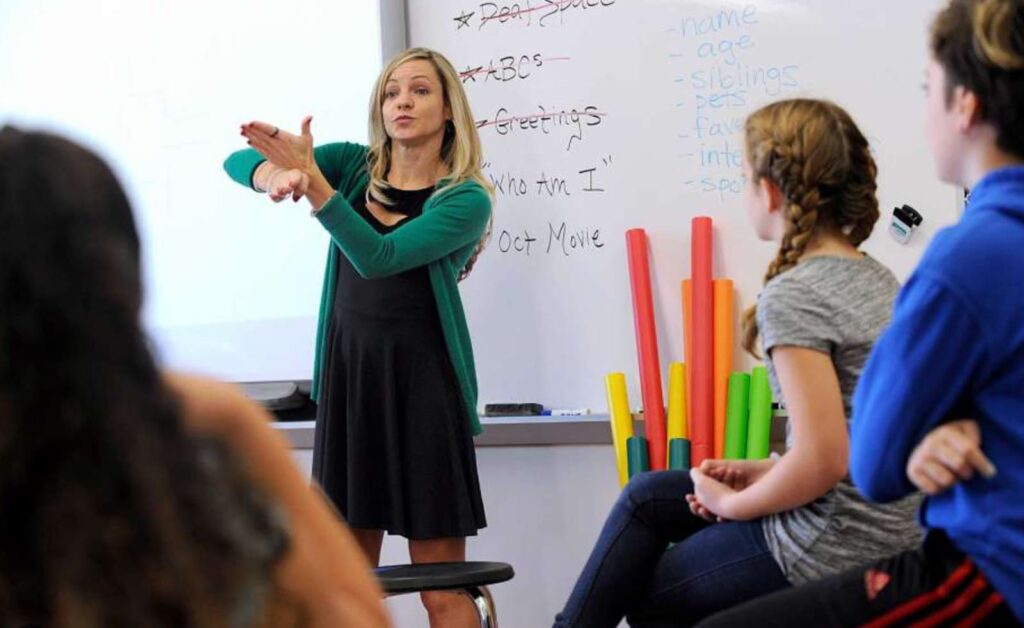Embarking on the journey from Amsterdam to America marks an exciting chapter in the lives of deaf students pursuing higher education. The transition to college life in a new country is filled with anticipation, challenges, and opportunities for growth. As students prepare to cross continents and immerse themselves in a new academic and cultural environment, they embark on a transformative journey that will shape their futures.
Preparing for the Transition
Before embarking on the journey from Amsterdam to America, deaf students must meticulously prepare for the transition ahead. This preparation involves a series of essential steps to ensure a smooth and successful adaptation to college life in the USA.
Researching Universities:
Deaf students should start by researching universities in the United States to identify institutions that align with their academic interests, career goals, and personal preferences. Factors to consider include program offerings, campus culture, location, and accessibility for students with disabilities. Exploring university websites, attending virtual information sessions, and reaching out to current students or alumni can provide valuable insights into the university experience.
Understanding Visa Requirements:
Navigating the visa application process is crucial for international students planning to study in the United States. Deaf students must familiarize themselves with the specific visa requirements for studying abroad and ensure that they have the necessary documentation and financial resources to support their stay. Consulting with immigration advisors or university international student offices can provide guidance and assistance in navigating the visa application process.
Exploring Resources for Deaf Students in the USA:
Deaf students should also explore resources and support services available to them in the USA. This includes researching disability services offices, student organizations, and advocacy groups that cater to the needs of deaf and hard of hearing individuals. Understanding the availability of accommodations, assistive technology, and community support can help deaf students feel more confident and prepared for their transition to college life in America.
Navigating the Intricacies of International Travel:
Preparing for international travel involves careful planning and organization. Deaf students should make arrangements for transportation to the USA, including booking flights and coordinating airport assistance if needed. Additionally, familiarizing themselves with airport procedures, customs regulations, and transportation options within the USA can help alleviate stress and ensure a smooth arrival.
Arranging Accommodations and Transportation:
Arranging accommodations and transportation is essential for ensuring a comfortable and accessible living environment in the USA. Deaf students should communicate their accommodation needs to university housing offices and explore options for accessible transportation on campus and in the surrounding community. Securing accommodations in advance helps deaf students feel more settled and supported as they begin their college journey in a new country.
By meticulously preparing for the transition to college life in the USA, deaf students can set themselves up for success and ensure a smooth adaptation to their new environment. Researching universities, understanding visa requirements, exploring resources for deaf students, navigating international travel, and arranging accommodations and transportation are essential steps in this process. With thorough preparation and proactive planning, deaf students can embark on their college journey with confidence and excitement.
Navigating Academic and Social Dynamics

As deaf students transition into college life in America, they are met with a rich tapestry of academic and social interactions. This blend of dynamics, unique to the college experience, presents both challenges and opportunities for growth. From acclimating to new class schedules and academic expectations to deciphering the nuances of campus culture, navigating these aspects is essential for a fulfilling college journey.
Adjusting to Academic Expectations:
One of the first hurdles deaf students may encounter is adjusting to the academic expectations of American universities. This may include adapting to different teaching styles, engaging with course materials in new formats, and mastering academic skills such as critical thinking and research. Seeking out academic support services, such as tutoring and academic advising, can help students navigate these challenges and excel in their coursework.
Navigating Class Schedules:
Navigating class schedules can be a daunting task for deaf students, especially as they balance academic commitments with personal responsibilities and extracurricular activities. Learning how to effectively manage time, prioritize tasks, and create a study routine is essential for academic success. Utilizing time management tools and seeking guidance from professors or academic advisors can help students stay organized and on track.
Understanding Campus Culture:
Each college campus has its own unique culture and social dynamics. Deaf students may find themselves navigating unfamiliar social norms, traditions, and social activities. Building connections with peers, participating in campus events and activities, and joining student organizations are great ways to immerse oneself in campus life and foster a sense of belonging.
Building Relationships:
Building relationships with peers, professors, and campus support staff is essential for creating a supportive community that enhances the college experience. Deaf students should actively seek out opportunities to connect with others, whether through group projects, study groups, or social events. Establishing rapport with professors and seeking out mentors can also provide valuable support and guidance throughout the college journey.
Creating a Supportive Community:
Creating a supportive community is key to navigating the academic and social dynamics of college life. Deaf students should seek out resources and support services, such as disability services offices, student organizations, and peer support groups, that cater to their unique needs and experiences. Building connections with other deaf students and allies can provide a sense of solidarity and belonging that enhances the college experience.
By actively engaging with academic and social dynamics, deaf students can navigate the challenges and opportunities of college life in America with confidence and resilience. Through proactive participation, building relationships, and creating a supportive community, deaf students can thrive academically, socially, and personally during their college journey.
Accessing Support Services
Accessing support services is paramount for deaf students navigating college life in America. Disability services offices serve as a crucial hub for accessing accommodations tailored to individual needs. These offices provide services such as sign language interpreters, captioning services, note-taking assistance, and assistive technology to ensure equal access to education. Additionally, student organizations dedicated to supporting deaf students offer valuable resources, peer support, and advocacy opportunities. By proactively seeking out and utilizing these resources, deaf students can empower themselves to thrive academically and socially in their college journey, ensuring that their unique needs are met and their voices are heard.
Embracing Opportunities for Growth
As deaf students embrace the opportunities for growth that college life in America offers, they embark on a transformative journey of self-discovery and personal development. By embracing their identity as deaf individuals, students can cultivate resilience, self-confidence, and a sense of belonging within the college community. Advocating for their needs and rights empowers deaf students to navigate challenges and barriers, fostering a sense of agency and self-advocacy. Seizing opportunities for academic and social engagement, from participating in classroom discussions to joining extracurricular activities, allows deaf students to broaden their horizons, expand their perspectives, and forge meaningful connections with peers and mentors. Every aspect of college life presents an opportunity for learning, growth, and connection, empowering deaf students to chart their own path and realize their full potential in the dynamic and diverse landscape of higher education.
Conclusion
In conclusion, the transition from Amsterdam to America marks the beginning of an exciting chapter in the lives of deaf students pursuing higher education. By preparing diligently, navigating academic and social dynamics, accessing support services, and embracing opportunities for growth, students can navigate the challenges and opportunities of college life with confidence, resilience, and determination.
